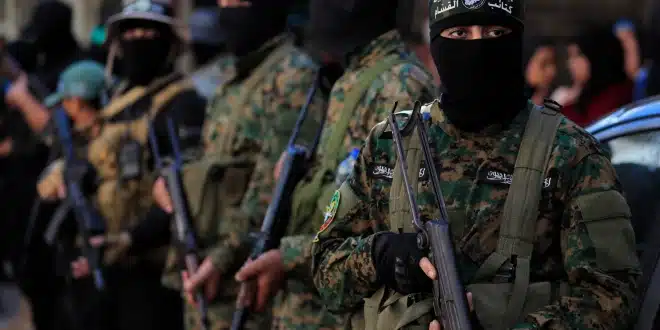Lebanon’s top security authority has formally cautioned Hamas against launching any further attacks on Israel from within Lebanese territory. The Higher Defense Council, the country’s principal military and security body, issued the warning following recent rocket launches that have escalated tensions in southern Lebanon.
The council stated that any faction threatening Lebanon’s internal stability or sovereignty would face severe consequences. In a statement read by Brigadier General Mohammed al-Mustafa, the council emphasized that the protection of Lebanese territory remains the state’s highest priority and warned that the firmest measures would be taken against any action that compromises national security.
Arrests and Legal Action Following Rocket Attacks
The announcement comes weeks after several individuals, including both Lebanese and Palestinian nationals, were arrested on suspicion of being involved in rocket launches into northern Israel. These attacks, which took place in late March, were followed by heavy Israeli airstrikes on targets across Lebanon. The suspects are expected to face legal proceedings starting early next week.
Although Hezbollah has been historically active along Lebanon’s southern border, it publicly denied involvement in the recent rocket fire. Security authorities have sought to clarify responsibility and prevent additional escalation. Lebanese forces have intensified efforts to assert control over the south, particularly in regions near the Israeli border that have seen repeated cross-border incidents.
National Leadership Reinforces State Authority
The Higher Defense Council meeting was attended by key national figures, including President Joseph Aoun, Prime Minister Nawaf Salam, Army Commander General Rodolphe Haykal, and the heads of Lebanon’s major security agencies. Prime Minister Salam reiterated the government’s stance that unauthorized weapons must be surrendered to state authorities to reinforce legal order and prevent armed groups from acting independently.
Since the onset of the Israel-Hamas conflict in October 2023, Hamas has carried out several attacks from Lebanese soil, prompting Israeli retaliation. One of the most significant incidents occurred when Israeli airstrikes killed senior Hamas leader Saleh Arouri in Beirut’s southern suburbs, highlighting the expanding scope of the conflict across regional borders.
Continued Hostilities and Regional Fallout
Despite a ceasefire agreement reached in November 2024, brokered with U.S. involvement to end the 14-month war between Israel and Hezbollah, Israeli military operations in Lebanon have persisted. Airstrikes are conducted on an almost daily basis, often targeting areas in southern Lebanon suspected of hosting militant activity.
On Thursday, Israel confirmed it had killed a member of Hezbollah’s elite Radwan Force in a drone strike. The following day, the Lebanese state news agency reported that an Israeli drone attack hit a gas station in the village of Houla, injuring five individuals. These incidents underline the ongoing volatility in the border region despite the formal ceasefire.
In a related development, Palestinian Authority President Mahmoud Abbas is expected to visit Lebanon later this month. The visit may include discussions on broader regional security and the status of Palestinian factions operating within Lebanon.
Lebanese authorities continue to face pressure to balance internal security concerns with the complex dynamics of regional conflicts. The government’s recent actions signal a renewed effort to reassert state authority and prevent non-state actors from dragging the country into wider hostilities.


